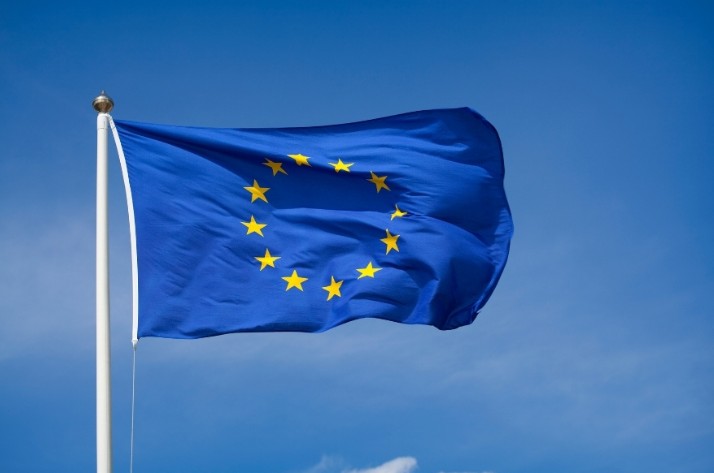Sui Generis Schengen Membership for Romania and Bulgaria: The Seed of EU Reform?

Ilustrasi Uni Eropa. Foto: Teacher Academy EU
The long-awaited Schengen accession for Romania and Bulgaria finally came to fruition when Austria approved their membership bid following intense negotiations. However, the membership is only partial due to the demand set out by Austria, which limits the scope to air and maritime borders. Further discussion on lifting border control at land borders will be negotiated in the future with a clear timeline. This comes after a State of the Union (SOTEU) 2023 speech by von der Leyen urging accession without further delay and an EU Parliament resolution that stressed the completion of Schengen requirements by Romania and Bulgaria. The pressure kept mounting as Romania recalled its ambassador from Austria, threatened to stall the Black Sea gas project, and even brought the case to ECJ (Genovese, 2023).
The Schengen accession process is similar to EU membership in that it requires political and legal requirements. First, the candidate state must apply the Schengen Acquis and undergo a series of evaluations; then, it gets voted on by the existing member states. Romania and Bulgaria first applied for Schengen membership in 2011 but failed to get approval from several member states due to a corruption scandal in the early 2010s. The 2015 migrant crisis and terrorism kept the discussion dormant for a couple of years. Then, the discussion resurfaced in 2022, when Bulgaria, Romania, and Croatia applied for Schengen membership. However, only the latter managed to gain full membership.
Interestingly, the accession happened amid the rise of the far-right anti-immigration movement in the EU, which was the result of the recent election victory of far-right parties in the Netherlands with the rise of Geert Wilders and Slovakia with Robert Fico. Furthermore, many EU countries that support immigration slowly U-turn by implementing anti-immigration laws, such as Sweden, Germany, and France. Poland’s visa fraud also caused Germany to reimpose border checks, thus undermining the integrity of Schengen even further. Not to mention the Dublin Riot, which further fuels anti-immigration sentiment.
The sui generis mechanism of Schengen membership reflects the EU’s desire to undergo a series of reforms to cope with future challenges. The mechanism could also shape the EU’s subsequent enlargement, which has been one of the critical points in SOTU last year). EU’s enlargement agenda seeks to speed up the accession process for Western Balkans, Ukraine, Moldova, and Georgia (EU Commission, 2023). Some scholars argue that this mechanism could become gatekeepers for candidate members from becoming actual members of the EU because it creates a multi-tier Europe, which is unfamiliar in the EU’s discourse (Marinov, 2023). This idea was further raised in the recent Franco-Germany report (2023), which discussed reform recommendations for the EU to facilitate future enlargement.
On the contrary, Romania and Bulgaria’s sui generis partial accession to Schengen could also reflect Schuman step by step integration. The development of de facto solidarity through concrete achievement must be realized first before moving to deeper integration (Schütze, 2021). The failure of the European Defence Community (1954) due to a lack of de facto solidarity became a pivotal lesson in forming the European Economic Community (1957). The member states reduced the vertical power of the Higher Authority of the ECSC in exchange for a broader scope of horizontal integration. The European people must see the benefit first and build de facto solidarity before moving to the next integration step. The partial accession could be an alternative way to both protect member states’ interests and a chance to gradually build up de facto solidarity. Another case worth mentioning is the failure of the EU Constitution 2003. The creation of the EU Constitution was seen as futile because everything had been mentioned in the existing treaties, thus rejected by France and the Netherlands. The leap was too significant, and there needed to be more de facto solidarity to push the agenda forward. The government and the people needed to see what the Constitution aimed to achieve. The EU learned the lessons reflected in Lisbon 2009, which sought to fix the democratic deficit within EU institutions.
Nevertheless, Romania and Bulgaria’s partial accession to Schengen does not directly translate to the creation of a multi-tier Europe. However, it serves as a first step for the EU to undergo a massive reform. Future challenges such as persistent illegal migration flow, defence policy, and enlargement agenda put pressure on the EU to call for reform. The EU must find a new mechanism to balance the Union’s and member states’ interests amidst the challenge ahead. The sui generis Schengen accession has successfully bridged the interest of the Union, which supports Schengen enlargement, and Austria, which concerns illegal migrant flow. However, the question of Hungary’s potential veto on Ukraine’s EU accession, France’s strategic autonomy vision and its opposition from Eastern European countries, and Poland’s rejection of EU migration reform remain to be answered. The partial accession of Romania and Bulgaria reflects the urgency for the EU to reform to face future challenges.
References
Beshku, Klodiana. “The EU as a geopolitical power. The case of the western Balkans region as the periphery to the core.” The Case of the Western Balkans Region as the Periphery to the Core (September 2021). Robert Schuman Centre for Advanced Studies Research Paper No. RSC 70 (2021).
France-German Working Group. Sailing on High Seas: Reforming and Enlarging the EU for the 21st Century. rep. Paris-Berlin (2023).
Genovese, V. Romania and Bulgaria, knocking on Schengen’s door (ii), Euranet Plus. Available at: https://euranetplus-inside.eu/romania-and-bulgaria-knocking-on-schengens-door-ii/. (2023). Accessed: 12 January 2024.
Marinov, P. Second-class Europeans? the vetoing of Bulgaria and Romania’s accession into the Schengen Area, European Generation. Available at: https://www.europeangeneration.eu/single-post/second-class-europeans-the-vetoing-of-bulgaria-and-romania-s-accession-into-the-schengen-area. (2023). Accessed: 12 January 2024. Schütze, R. European Constitutional Law. Oxford: Oxford University Press. (2021)
Arya Ahmad Afani is an undergraduate student of international relations at Universitas Airlangga. He can be found on Instagram and Twitter with username @aryahawkz





